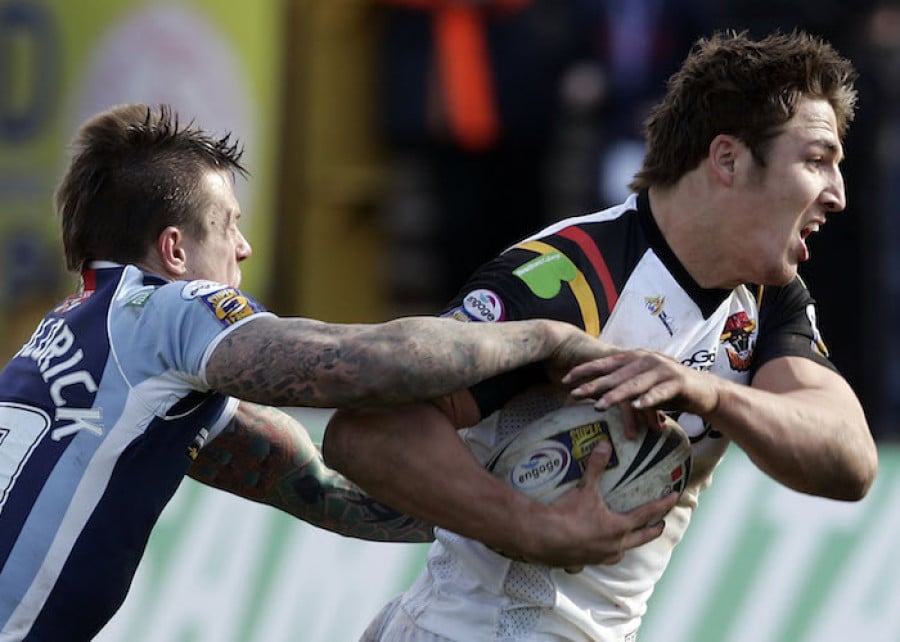Can you prevent cross-code player poaching in rugby?

In this article, James Hill explores whether it is possible to prevent cross-code player poaching in rugby using the RFU, NRL or Super League rules on illegal approaches or by other means, and dissects Sam Burgess’ controversial move from rugby league to rugby union by way of example.
The Background
In recent months, the subject of illegal player approaches (or “tapping up”) has come back into focus, particularly following the cross-code signing of rugby league superstar Sam Burgess from the South Sydney Rabbitohs of the NRL by Bath of rugby union’s Aviva Premiership1.
Players are now switching between the codes at an increasing rate: Sonny-Bill Williams has played in in both Union and League World Cups in the last 3 years (and is on his way back to union for the next one)2; Chris Ashton, Joel Tomkins and Kyle Eastmond have all successfully made the switch to international rugby union for England3, and Gareth Thomas has made the move the other way for Wales4.
And it is not just confined to rugby. Israel Folau has gone from International and State of Origin rugby league star, to Australian Rules Football wannabe with the AFL’s GWS Giants, before a second code change to rugby union where he represented Australia in a British & Irish Lions series after only 14 games in the code5.
Nowadays, the top players in these sports are not only supreme athletes with transferrable core skills, they are also superstars of their respective games with an x-factor that both pulls in crowds and provides results. This makes them valuable commodities for codes to poach from one another in the ongoing battle for supremacy.
The Sam Burgess affair
Despite being under contract until 2016, the Rabbitohs have agreed to release Burgess from the final two years of his contract at the end of the 2014 NRL season, in exchange for a transfer fee of around £500,0006. It is believed Burgess’ interest in changing codes was sparked after being approached by Andy Farrell about making the move to Union during the Rugby League World Cup in November 2013 (it should be noted that Farrell has denied making any approach7).
Regardless of whether an approach was or was not made, the suggestion raises a number of questions. In particular whether the regulations regarding illegal player approaches apply across codes, if so which code’s regulations would take precedence and, if not, whether there should be some form of mutual observance of these principles across the sports.
The Regulations
Despite illegal player approaches being discouraged by the majority of governing bodies, each appear to take a different approach to the problem, both within and across the various sports:
| Governing Body | Player Approach Regulations |
| Rugby Football Union(Rugby Union) | RFU Regulation 7.1 - No Club or Constituent Body may directly or indirectly, approach any player who is under contract with a Club, Constituent Body or Union to induce or attempt to induce such player to leave that Club, Constituent Body or Union unless such approach is made in the final six months of the term of that player’s contract. |
| National Rugby League(Rugby League) | NRL Code of Conduct - A club is allowed to participate in discussions with any player at any time. However, a player cannot sign a new contract until Round 13 of the last year of his contract, unless provided with written permission from his current club. |
| Super League(Rugby League) | Super League Operational Rule C.1:3:3(a) - A Club or Licensed Agent or other person acting on a Club's behalf shall not approach any Fulltime Contracted Player directly or indirectly (which shall include statements made to the media) until 1st May prior to the date upon which the Player's contract is due to expire without receiving the prior written consent of the Club to whom the Player is contracted and such consent shall not be unreasonably withheld or delayed. |
| Premier League(Football) | Premier League Handbook 2013/14 Rule T.1- A Club shall be at liberty at any time to make an approach to a Player with a view to negotiating a contract with such a Player: T.1.1. if he is an Out of Contract Player; orT.1.2. in the case of a Contract Player, with the prior written consent of the Club (or club) to which he is contracted.Premier League Handbook 2013/14 Rule T.2- A Club shall be at liberty after the third Saturday in May in any year and before the 1st July next following to make such an approach to a Contract Player: T.2.1. who will become an Out of Contract Player on that 1st July; and T.2.2. who has received no offer from his Club under Rule V.17.2; or T.2.3. who has received but has declined such offer.Premier League Handbook 2013/14 Rule T.3 - Any Club which by itself, by any of its Officials, by any of its Players, by its Agent, by any other Person on its behalf or by any other means whatsoever makes an approach either directly or indirectly to a Contract Player except as permitted by either Rule T.1.2 or Rule T.2 shall be in breach of these Rules and may be dealt with under the provisions of Section W of these Rules (Disciplinary).n.b. Similar regulations have been put in place by the FA and FIFA. |
While their mechanisms differ, the connecting theme of these regulations (and tapping up in general) is that clubs are not allowed to approach a contracted player with a view to negotiating a contract before a certain date, without the consent of the player’s current club. Only the NRL differs in allowing approaches to be made at any time (albeit with a restriction on when contracts can be signed).
Enforcement
To continue reading or watching login or register here
Already a member? Sign in
Get access to all of the expert analysis and commentary at LawInSport including articles, webinars, conference videos and podcast transcripts. Find out more here.
- Tags: Contract Law | Employment Law | Governance | International Rugby Board (IRB) | NRL | Regulation | Rugby | Rugby Football Union (RFU) | Super League
Related Articles
- Buy-Out & Release Clauses in football contracts: The basics
- Rugby law recap: damages for head injury victim, new TMO system, abuse of match officials, and problems with sleeping pills
- The salary cap in Rugby Union
- The Courtois conundrum and the controversial clause
Written by
James Hill
James is an associate specialising in commercial litigation and regulatory matters in the sports sector - in particular football, rugby, cricket and cycling - advising governing bodies, clubs, athletes, agencies and brands. Prior to Onside Law, James trained and qualified at Fieldfisher in the Dispute Resolution department.
His practice encompasses High Court and County Court litigation, international and domestic arbitration, sports disciplinary proceedings and regulatory investigations. Regular work includes contractual disputes, sports disciplinary proceedings, governing body investigations, breaches of post-termination restrictive covenants, claims for inducing breach of contract, insolvency claims, defamation and intellectual property infringements.
He also has experience advising clients on commercial agreements, drafting rules and regulations for governing bodies, advising agents and players on representation contracts and advising clubs and agents on playing contracts and transfers.
Away from the office, James is a Millwall season ticket holder and keen cyclist since injury brought his rugby playing days to an end.

 Global Summit 2024
Global Summit 2024